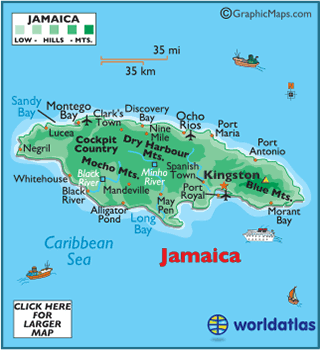Interview with Peace Corps Kids, Olivia and Nyla To-Haynes
What advice do you have for other Peace Corps Kids?
Nyla: Learn your heritage, know where you come from. Because it will be a big part of your identity, because it’s not you but it IS you.
Olivia: Don’t limit yourself to one box. You know that box thingy that you have to check at school. And it will say check what race you identify as, and you'll see yours and then you’ll see another, and I never know if I should check Other and write Jamaican, so usually I just put Black and Asian, and a lot of times it will say “mark one” but I can’t mark just one because I am not just one.
But if you are black and mixed with something, you have to know that people will not always see the other half of you they will only see the main part of you as one thing, like if you have curly hair or dark complexion...people will try to put you in a box.
Nyla: You have to know who you are as a person and where you come from. And just explain to people that you are not just one thing
How does it help you to know where you come from?
Olivia: I think it’s easier to brush off stupid things. Our sisters are a lot older than us, they are 10 years older, if we go places with them, people will think that they are our moms and not our actual mom. And when we are all together, people will ask “are you all together?”
There are a lot of looks you get, especially being a black person in an Asian community, there’s definitely a lot of looks and stares....when you go with mom to the Asian store and mom goes in there and doesn’t think anything of it, and then I’ll go in there and people stare at me from left and right.
Nyla: It helps because you have a sense of who you are and know where you come from and that you will always have your communities around you and who understand you and know the things you go through in life.
I talked with Olivia, 16 and Nyla, 12 while they were taking a short break from working at their family's new food cart the "Jamaican Jerk Shack." We talked about their mom's Peace Corps stories, the food cart, and their experiences as mixed race kids. They have been spending a LOT of their summer vacation helping their parents getting the food cart business of the ground.
Olivia and Nyla's parents, Nhu and Craig To-Haynes started Fi-Mi Kingston in 2013, initially focusing their business on making and selling Jamaican-based spice products. They have involved their four daughters in their business over the years, seeking their input along the way. It's not surprising that the girls feel a sense of ownership and enjoy working at the cart.
Nhu and her husband Craig met in Jamaica in the '90's. Craig was working for the Peace Corps office in Kingston, while Nhu served as a HIV/AIDS Health volunteer. Nhu, Craig and his two daughters Khalilha and Lamarra settled in Portland, Oregon; when Nhu was two, her parents were forced to flee Vietnam in the 70's and settled in Oregon. After their older daughters got to be teenagers, Nhu and Craig decided to expand their family and had Olivia and Nyla.
(More from the interview...)
About the Peace Corps…
Olivia: I don’t know what she did. I have heard stories though, like….about how my parents met.
Nyla: Yeah, she tells stories more than explaining what she did.
Julie: So, how do you remember the story of how they met?
Olivia: Mom said that there was a hurricane coming and then Dad called her….and she thought that he was calling about the hurricane.
Nyla: Yeah, she thought he was calling to make sure that she had supplies or something…
Olivia: And he asked her on a date.
Julie: So he called and said…”Hi, a hurricane is coming, do you want to go out on a date with me?”
Olivia: Essentially, yeah.
What else has your mom told you about the Peace Corps?
Olivia: She made a lot of friends.
Nyla: Yeah, like lifelong friends that you’ll always have through the Peace Corps.
Olivia: And when she sees her friends after not seeing them for awhile, they just catch up on things really quickly. And one of her other friends also got married to a Jamaican man and had two daughters. We are all really good friends.
Have you ever thought…”I want to do the Peace Corps.”?
Nyla: No, I mean, I have thought about it and that it would be fun, but I wouldn’t WANT to do it, because I feel like it would be really hard.
Olivia: Me and Nyla like for things to the stay the same, and going somewhere new where you don’t know anyone for two years, is not “the same.”
Nyla: It seems like a lot.. You would have to be really sure of yourself and what you want to do to like go do that.
What do you think about the fact that your mom volunteered with the Peace Corps?
Olivia: I feel like it fits her. She is a very outgoing person.
Nyla: Yeah, she is a really adventurous person and she adapts easily to new situations.
Olivia: She is a go-with-the flow kind of person.
Nyla: She didn’t expect to end up in Jamaica, she thought she was going to go somewhere different.
Olivia: She said that she got somewhere cold, and then she didn’t want to go there, and so they put her in Jamaica, and she was like “oh, okay.”
Has your Dad talked to you about his experience coming to the US for the first time?
Nyla: Yeah, he said it was really different and it was like adapting to a whole another new culture. Things are very different in Jamaica.
Olivia: And also because in Oregon there is a lot of Caucasian people here, and in Jamaica, I mean, there is, but mostly everyone around you is...Jamaican. And so moving here, and everyone just thought he was black, instead of something else more specific.
Would you say that you feel more or less connected to Vietnam or Jamaica, culturally speaking?
Olivia: Our parents did a really good job at showing us a lot about both sides of our culture; not so that we knew a lot about just one. They’ve taught us equally enough about each to the point that I don’t feel drastically pulled toward one. But it’s also different when you are in America because nobody is going to think off the bat that I’m half Asian. It’s weird that you basically have to prove to people like they won’t believe you right away. They’ll be like “no way” and I’ll be like “yeah, okay...I don’t know how to prove that.” Or they’ll see my mom, and they’ll say “that’s your mom?” and I’m like “yeah, what did you expect?” Then if you tell them that your Dad is Jamaican, they’ll say “oh, does your dad smoke weed?” “does your dad have dreads?” which he does (have dreads), but it’s just a lot of stereotypes. If you just see us on the street, you can see that we are mixed, but in America they only see the black side or the Jamaican side. They don’t see the other half. You are connected to both, but you have to know how people see you when they first look at you, those first impressions.
I remember we talked about that Olivia. Is that your experience, Nyla?
Nyla: We go to school with mostly white kids, and so there are a lot of stereotypes and things they assume about you based on how they see you. Out of ignorance, because they are not culturally aware of other people because they’ve only grown up with white kids.
Olivia: A lot of the other black kids, they are African-American so they don’t know exactly there heritage or where they are from. So like we are very conscious of what we know. So, when people say things, we don’t take it to heart, because people are really uneducated about it.
About Visiting Jamaica and Vietnam...
What comes to your mind first when you think about your trip to Jamaica?
Nyla: HOT! It’s different overall. It’s like a good different, it’s like really hot and people are different. People are here are really nice, but it’s not like you just walk up to people and talk to them. It’s very much more “stay to yourself” here.
Olivia: The whole vibe is different. We have heard lots of stories from my dad about when he was growing up, and so I think that put some thoughts into our head before we went there. It’s definitely different there, it’s like someone might just walk up to you and ask you or try to sell you stuff. Yeah - it’s definitely culturally different.
Have you talked about going back?
Olivia: Yes, I want to go back, but I want to go to Vietnam first.
Nyla: Yeah, we want to go to Vietnam first before we go. The other half of our culture. We want to see what similarities and differences they have.
What if you had the opportunity, would you want to spend a year in Jamaica or Vietnam?
Nyla: Not a whole year!
Olivia; My mom said that she would send me to Vietnam for 6 months with one of my cousins. Because I don’t know Vietnamese, and she said that it would help me learn the language.
Nyla: Seems like you would want to learn at least some of the language to be able to get around.
Olivia: I also feel like it would be harder to adapt to Vietnam than Jamaica.
Nyla: It’s also a lot farther. It’s half-way around the world!
Olivia: I would go one year split between the two. I would go to Vietnam and then Jamaica
Nyla: I would definitely want breaks in between…
When you think about your Vietnamese side, what comes to mind first?
Both: FAMILY! and food
Olivia: We have a lot of family on our Vietnamese side here, a lot of cousins. I’m going to go to high school with two of them and we are all going to graduate one after another.
Both: We are really close.
Olivia: My mom has a lot of her friends, her best friends who came to America with her, a lot of them have kids our age, I go to school with one of them. One of them was born two weeks after me. So it’s really nice to have bond like that.
Nyla: In comparison, none of our family on our Jamaican side live in Oregon
Olivia: We never see our family form Jamaica all at once. They either live in other countries or on the East Coast. I have met only one other Jamaican girl here in Portland, but we didn’t have that much to talk about because she didn’t know that much about her heritage so i was just like “oh.”
How do you feel about being mixed?
Olivia: Being mixed is fun, especially not “traditional” mixed,
Nyla: When you think of mixed kids, they are primarily half black and half white.
Olivia: So, when you tell people that you are half black and half Asian, they are like, “oh, that’s so rare.” Or they get really excited, they are like, “Oh my god, you’re blasian, I have never met a blasian before!
Sounds like you are proud to be Jamaican, proud to be Vietnamese and proud to be mixed…?
Simultaneous and enthusiastic: Yeah!
Nyla: That’s how we carry ourselves .


















Comments